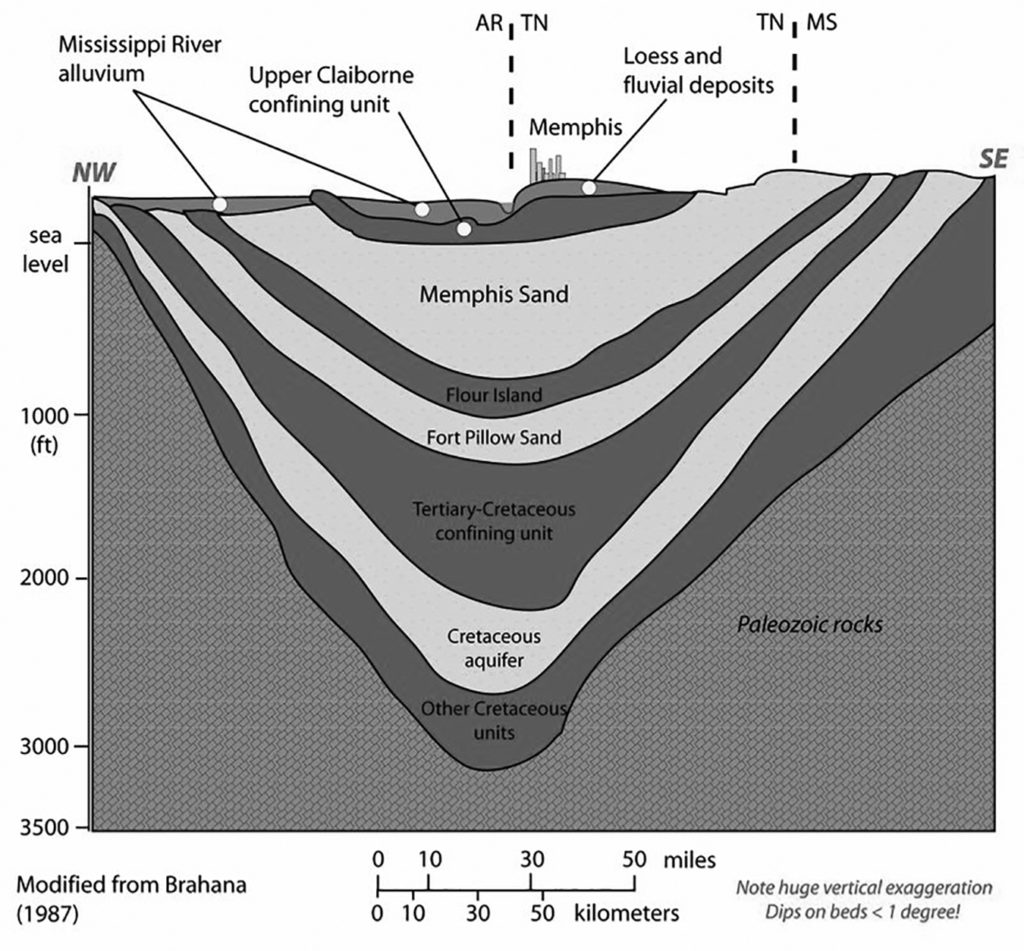By Aarron Fleming
Memphis found itself in court last Monday defending against the accusation that it has stolen 252 billion gallons of water from Mississippi over the last roughly decade and a half.
The case primarily concerns the bluff city and its pumping of water from the Claiborne Aquifer but MLGW and the state of Tennessee as a whole are named as well.
They are all collectively referred to as Tennessee.
“The Court should reject the Special Master’s conclusion that equitable apportionment is Mississippi’s sole remedy because it’s a remedy that redresses the wrong injury.” said John Coghlan, Mississippi’s deputy solicitor general who is representing the state, in his opening statement to the court.

“Mississippi does not claim that Defendants are taking more than their fair share of groundwater. Rather, Mississippi’s case turns on a different question: Do Defendants have the right to control groundwater while it is located within Mississippi’s sovereign territory?”
Coghlan’s main argument last Monday was that the groundwater that it alleges Tennessee stole was well within Mississippi’s borders and that because of that, the state has exclusive control over it.
He was pressed by Justice Sonia Sotomayor who highlighted how many times Mississippi has tried the case in court and how many times its efforts were shut down.
“When is enough enough?” she said. “When should you be stopped from amending and seeking equitable apportionment, assuming you lose? But it is a question that’s open in this case.”
Mississippi has continued to fight to have its day in court over the case since 2005.
In the original case, the US District Court for the Northern District of Mississippi ruled against the state arguing that the aquifer where it alleges the water was stolen from is “an interstate resource and that Mississippi could not be granted relief unless and until the aquifer was apportioned, or divided and assigned”, according to Ballotpedia.
Mississippi filed an appeal with the US Court of Appeals for the Fifth Circuit, but the court upheld the district court’s original decision.
The state then attempted to bring it before the supreme court, but the court denied its petition for review.
Finally, in June 2015, the supreme court accepted the state’s motion for leave to file a bill of complaint and appointed Eugene Siler Jr. as special master.
Siler delivered his first report in November last year and recommended that the court dismiss the case.
Despite that, the court agreed to hear the case on July 2 anyway.
The case is a gray area because the groundwater flows between the two states rather than sitting exclusively in one or the other.
And although the case concerns interstate groundwater, both Coghlan and David Frederick, who represents Tennessee in the case, rejected equitable apportionment, the legal doctrine for interstate water cases, as a viable solution.
Coghlan is seeking relief for Mississippi as well as $615 million in damages but wants to keep equitable apportionment as an option should the state lose the case.
Frederick, on the other hand, stated that he agreed with Siler that the case should be dismissed altogether.
He diverted, however, in stating that Mississippi should not be allowed to seek equitable apportionment, an option that Siler left the door open for.
“Tennessee has lawfully pumped groundwater out of the Middle Claiborne Aquifer on its side of the border for more than 130 years,” he said. “The Special Master correctly recommended dismissal of Mississippi’s complaint but erred in suggesting that Mississippi be freely granted leave to amend.”
Now that oral arguments have been heard, the case has been submitted to the court and is awaiting a decision.



